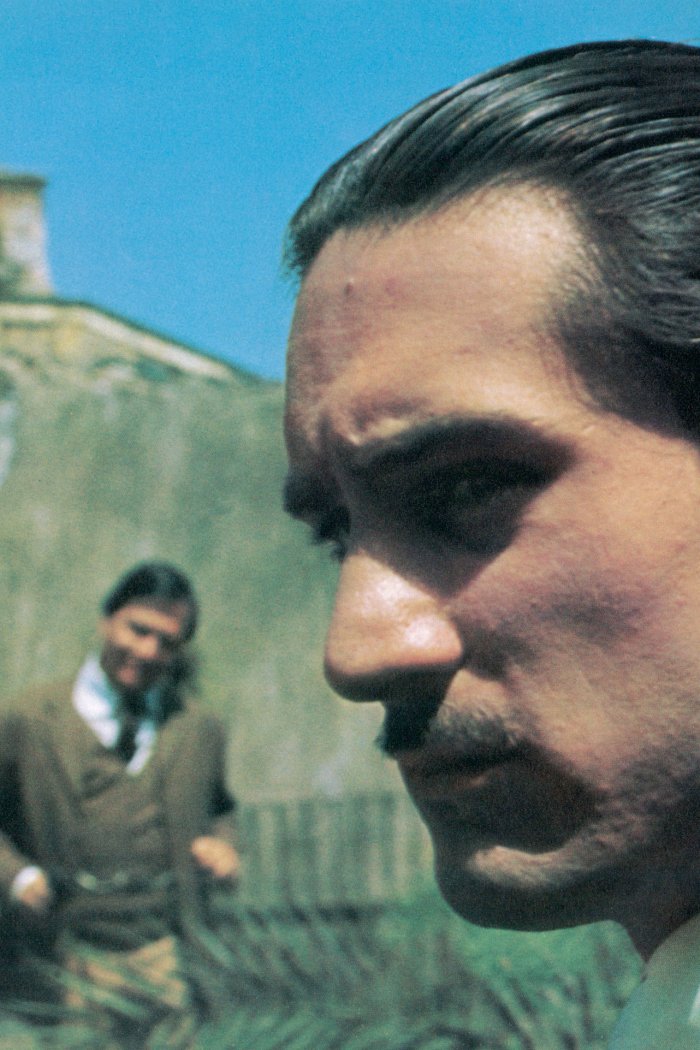You don’t need to have lived through the American ’70s to see how Martin Scorsese and screenwriter Paul Schrader captured its essence—the sense of hopelessness and helplessness, of cities and a whole country spun out of control—in Taxi Driver. Robert De Niro’s Travis Bickle, a loner—and a veteran—seems possibly harmless at first. Maybe he’s just the sad, self-pitying teen of Paul Anka’s late-’50s hit “Lonely Boy” grown into an anxious, sleepless man. He’s trying to hold everything together, pouring his energy into long hours at work, keeping his diary of bromides, but we can see that his emotional logic, bolstered by judgment-day certainty, is frayed at the edges. De Niro gets right inside Travis, looking out with a steely gaze that claims to see all and yet also floats dangerously above the surface of reality. Released the year after the United States pulled out of Vietnam, Taxi Driver spoke of a particular kind of defeat, but also of anger for which there was no healthy release. It’s a drag that such a brilliant and unnervingly perceptive work has inspired so many lesser imitations, and that so many performers—even some very good ones, like Christian Bale, Joaquin Phoenix, and Sam Rockwell—have at times tried to clutch at De Niro’s brilliance without coming close to matching it. But that should never be held against it. Taxi Driver will forever be a film of chilly greatness.
- Cybersecurity Experts Are Sounding the Alarm on DOGE
- Meet the 2025 Women of the Year
- The Harsh Truth About Disability Inclusion
- Why Do More Young Adults Have Cancer?
- Colman Domingo Leads With Radical Love
- How to Get Better at Doing Things Alone
- Michelle Zauner Stares Down the Darkness




